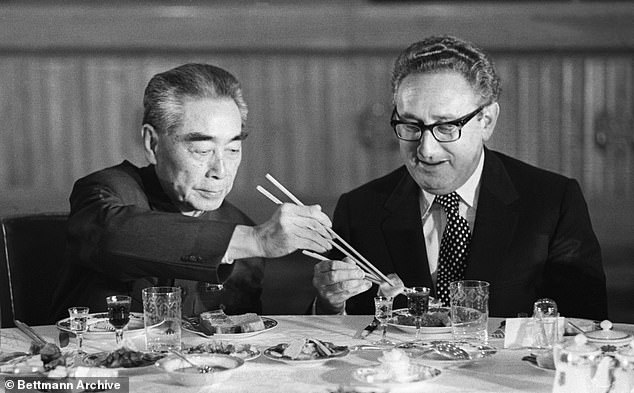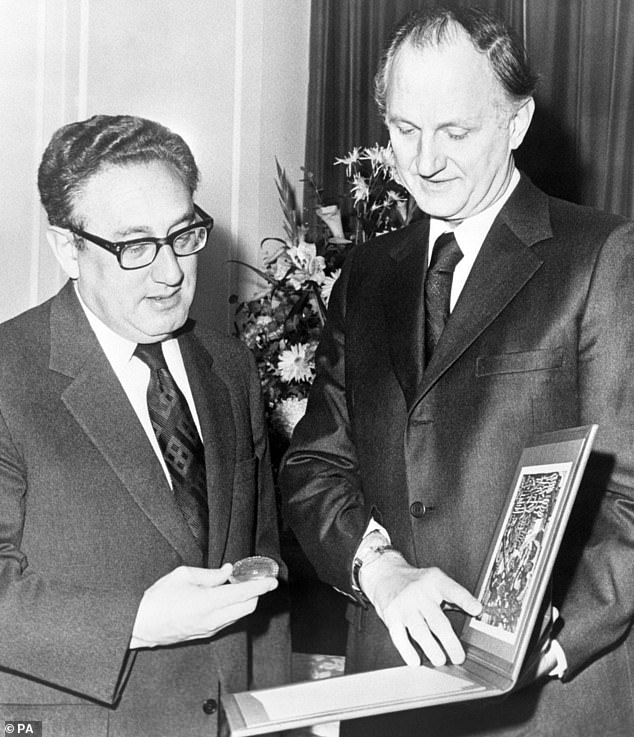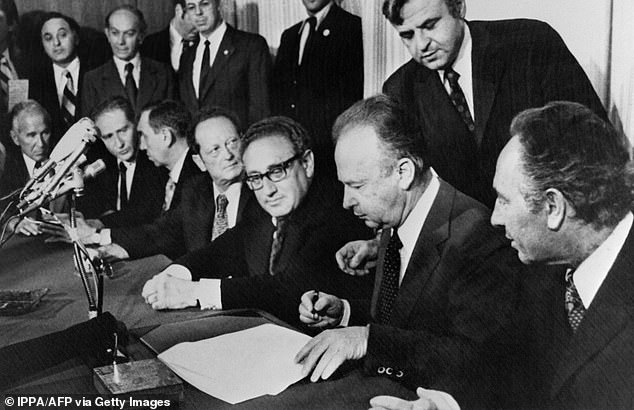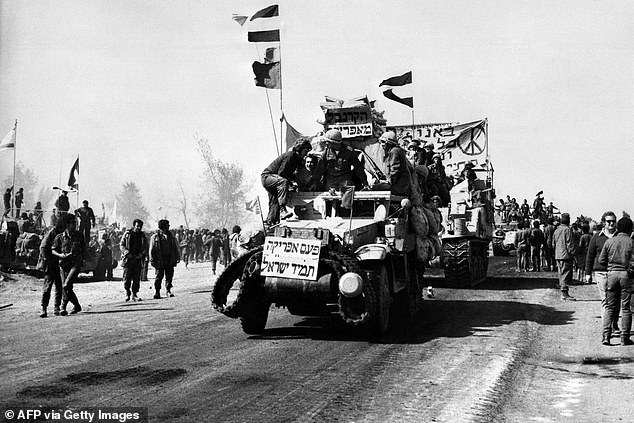How Kissinger became the nexus of US political foreign policy: From negotiating with the USSR to back channel talks with China and a Nobel Peace Prize for ending the Vietnam War
For eight troubled years—first as national security adviser, later as secretary of state, and for a time as both—Henry Kissinger played a dominant role in American foreign policy.
The Austrian, who died on Wednesday at the age of 100, carried out the first ‘shuttle diplomacy’ in the quest for peace in the Middle East. Between October and December 1973, Kissinger visited 26 countries.
He used secret negotiations to restore ties between the United States and China.
He initiated the Paris talks that ultimately provided a face-saving way to get the United States out of the Vietnam War.
As a result of these efforts, Kissinger, along with his Vietnamese counterpart, Le Duc Tho, was awarded the Nobel Peace Prize in 1973. However, Le Duc Tho did not attend the ceremony.
And he sought détente with the Soviet Union, which led to arms control agreements.
President Nixon and Kissinger toast with Leonid Brezhnev and Grmyko during the Kremlin’s seven-day summit with the Communist Party of the USSR

Kissinger accepts food from Chinese Premier Zhou Enlai during a state banquet at the Great Hall of the People in Beijing
Kissinger’s enormous influence on American affairs began when President Richard Nixon appointed him national security adviser in 1969. Before that, Kissinger taught international relations at Harvard.
Kissinger is undoubtedly the most revered and reviled in Asia. After his death, Chinese state media called him “an old friend of the Chinese people.” He is the only American who has dealt with every leader of the communist country from Mao Zedong to Xi Jinping.
Kissinger famously traveled to China in 1972, where he met with Mao and then-Prime Minister Zhou Enlai, Kissinger, in a show of solidarity that would sow fear in the Soviet Union.
His carpet bombing of Cambodia between 1969 and 1970 saw him pursued until his death, and thereafter with accusations that he was a “war criminal.” About 50,000 civilians are believed to have died.
That, in turn, led to the rise of Pol Pot’s brutal dictatorship.
This policy was part of a strategy to drive North Vietnamese leaders to the negotiating table by planting the idea that Nixon was a “madman” capable of anything.
In the Middle East, his reopening of U.S.-Egypt diplomatic ties helped pave the way for the Camp David Accords, which were signed by President Jimmy Carter after Republicans left the White House.
His policy of shuttle diplomacy is believed to have brought the 1973 Arab-Israeli war under control after Egypt and Syria’s surprise attack on the Jewish state.
Just days after reopening diplomatic ties with Egypt, the country’s military leaders signed a peace deal with Israel at kilometer 1010 on the Cairo-Suez highway in the Sinai Peninsula.

Kissinger receiving his Nobel Peace Prize from Mr Thomas Byrne, US Ambassador to Norway, at Claridge’s Hotel, London in 1973

Israeli Prime Minister Yitzhak Rabin reads the Sinai Interim Agreement, also known as the Sinai II Agreement, in Jerusalem on September 2, 1975

Israeli forces withdraw from positions west of the Suez Canal on March 1, 1974, following a withdrawal agreement between Egypt and Israel
When Gerald Ford took office in the summer of 1974 after Watergate, Kissinger accompanied the new president to Vladivostok, the Soviet Union, where the president met Soviet leader Leonid Brezhnev.
The group agreed to a basic framework for a strategic arms pact. The agreement ended Kissinger’s pioneering efforts at détente, which led to an easing of tensions between the US and the Soviet Union.
In South America, Kissinger supported the military regimes in Chile and Argentina.
In the first case, the then Secretary of State ordered the CIA to support the leadership of Augusto Pinochet, overthrowing the democratically elected socialist Salvador Allende.
‘I don’t see why we should have to watch a country become communist because of the irresponsibility of its people. The issues are far too important to let Chilean voters decide for themselves,” Kissinger said said in 1975.
Argentina’s military believed Kissinger had given them the green light to wage their “dirty war” against left-wing dissidents, declassified documents later revealed.
He said the military needed encouragement at the time of the 1976 coup and later praised them for wiping out “terrorist forces.”
There were fears within the American intelligence community that Chile would be used by the USSR as a conduit to spread communism throughout America.
After the American withdrawal from Vietnam, Kissinger’s policy in Asia remained aggressive and supported the Indonesian invasion of East Timor.
And during the 1971 Indo-Pakistani war, Nixon and Kissinger were heavily criticized for leaning toward Pakistan. Kissinger was heard calling the Indians “sons of bitches” – a comment he later said he regretted.
During this period, Kissinger was accused of turning a blind eye to the atrocities committed by Pakistani soldiers.
While in Africa, Kissinger supported apartheid and South Africa’s incursions into Angola. At the same time, he advised the Rhodesian-white minority government to give up power.
With Carter’s election in 1976, Kissinger left the White House, although he remained in the public eye.
He supported President George W. Bush’s invasion of Iraq in 2003.
In an interview this year, Kissinger said of his critics during an interview with CBS News, “That’s a reflection of their ignorance.”
He was equally optimistic about his diplomatic career in a 2022 interview with ABC News.
‘I’ve thought about these problems all my life. It is both my hobby and my profession. And so the recommendations that I made were the best that I could do at the time.”
